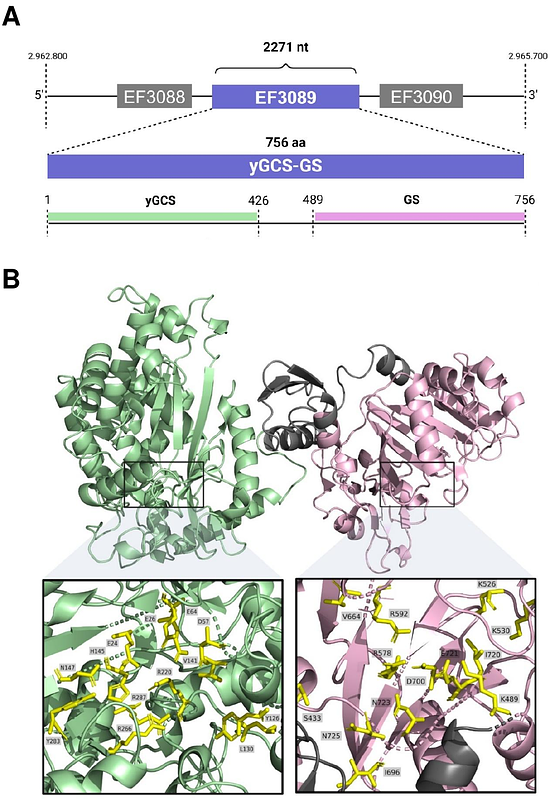Reduced glutathione levels in Enterococcus faecalis trigger metabolic and transcriptional compensatory adjustments during iron exposure.

Reduced glutathione levels in Enterococcus faecalis trigger metabolic and transcriptional compensatory adjustments during iron exposure.
Aliaga-Tobar, V. M.; Torres, J.; Mendoza, S.; Galvez, G.; Ortega, J.; Gomez, S.; Parra, V.; Arenas, F.; Maass, A. E.; Siegel, A.; Gonzalez, M.; Latorre, M. A.
AbstractEnterococcus faecalis, a facultative anaerobic pathogen and common constituent of the gastrointestinal microbiota, must navigate varying iron levels within the host. This study explores its response to iron supplementation in a glutathione-deficient mutant strain ({Delta}gsh). We examined the transcriptomic and metabolic responses of a glutathione synthetase mutant strain ({Delta}gsh) exposed to iron supplementation, integrating these data into a genome-scale metabolic model (GSMM). Our results show that under glutathione deficiency, E. faecalis reduces intracellular iron levels and shifts its transcriptional response to prioritize energy production genes. Notably, basal metabolites, including arginine, increase. The GSMM highlights the importance of arginine metabolism, particularly the arc operon (anaerobic arginine catabolism), as a compensatory mechanism for reduced glutathione during iron exposure. These findings provide insights into how E. faecalis adjusts metal homeostasis and transcriptional/metabolic processes to mitigate the effects of oxidative stress caused by iron.